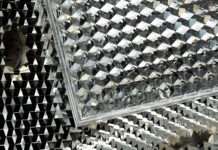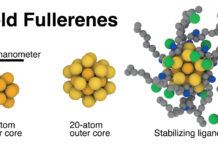
FACTORIES, THE CHIEF innovation of the industrial revolution, are cathedrals of productivity, built to shelter specialized processes and enforce the division of labor.
Adam Smith, who illuminated their function on the first page of The Wealth of Nations, offered the celebrated example of a pin factory: “I have a seen a small manufactory… where ten men only were employed, and where some of them consequently performed two or three distinct operations. [They] could make among them upwards of forty-eight thousand pins a day… Separately and independently… they certainly could not each of them have made twenty, perhaps not one pin a day.”
But the benefits of factories suggest their limitations. They are not reprogrammable: To make different products, a factory must retool with different machines. Thus, the first product shipped is much more expensive than the next million, and innovation is hobbled by the need for capital expenditure and is never rapid. More, specialization compels multinational businesses to circle the globe with supply chains and warehouses, because goods must be shipped and stored.
All that is about to change. In another industrial revolution, humans are making new things in novel ways into hitherto impossible shapes, using the technology of a fizzled craze: 3-D printing. This summer, I visited the future of manufacturing at the headquarters of Desktop Metal, a startup in Burlington, Massachusetts, which is building printers that make metal parts. Co-founded in 2016 by the serial entrepreneur Ric Fulop and four MIT professors, including Emmanuel Sachs (who first coined the term “3-D printing”), Desktop Metal has raised over $277 million from investors such as Kleiner Perkins, General Electric, BMW, and Ford, and is valued at more than $1 billion. (Disclosure: I have known Fulop, best known for starting the failed battery company A123 Systems, for more than a decade.)
Read more: 3D Printing Is the Future of Factories (for Real This Time)
thumbnail courtesy of wired.com










